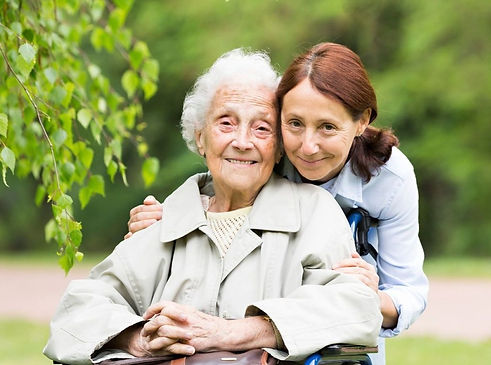
Waiver Services: The What, Who, & How

What are
Waiver Services?
Minnesotans with disabilities or chronic illnesses who need certain levels of care may qualify for the state's home and community-based waiver programs. Medicaid home and community-based service (HCBS) waivers afford states the flexibility to develop and implement creative alternatives to placing Medicaid-eligible people in hospitals, nursing facilities or Intermediate Care Facilities for Persons with Developmental Disabilities (ICFs/DD). HCBS waivers allow states to put together various service options that are not available under regular Medical Assistance. These service options are available to people in addition to services covered by Medical Assistance. Generally, these services are targeted to people with specific needs or diagnosis.
DHS recognizes the importance of helping people live where they choose with appropriate services that assure their health and safety. In 1999, the United States Supreme Court in the Olmstead v. L.C. decision interpreted the Title II of the American with Disabilities Act (ADA) to include supporting people with disabilities in the most integrated setting possible. The decision applies to people of any age who have a disability.
The Olmstead v. L.C. decision played a vital role in the expansion of consumer-directed services in Minnesota as well as in other states. More information is available on Minnesota's Olmstead Plan. Corresponding with the Olmstead v. L.C. decision, President George W. Bush in February 2001 announced the New Freedom Initiative. The New Freedom Initiative is a comprehensive plan that represents an important step in working to ensure that Americans have the opportunity to learn and develop skills, engage in productive work, make choices about their daily lives and participate fully in community life.
Who is eligible for
Waiver Services?
To participate in one of the home and community-based waiver program, the following questions must be asked about the services:
-
Are the services necessary to ensure the recipient's health, welfare and safety?
-
Will the services address skill development and/or skill maintenance?
-
Is the service covered by any other funding source, such as Medical Assistance state plan services, private health care coverage, Medicare, education or Vocational Rehabilitation Service?
-
Have all options been assessed and does this option meet the individual desires, needs and preferences of the person?
-
Is the cost of the service considered reasonable and customary?
Because each of the waiver programs was written to meet federal guidelines, each program includes:
-
Eligibility requirements specific to the type of disability
-
Funding parameters and limits
-
Separate county and/or state policies
-
Service menus


How do you access
waiver support programs?
You can apply for waiver programs at your local county social services agency. A screening process determines eligibility for all waiver programs.
DHS administers the following waiver programs for people with disabilities:
DHS also administers the Elderly Waiver (EW) waiver program and the Alternative Care program to provide home and community-based services for eligible older Minnesotans. For more information or to apply, contact your local county agency.